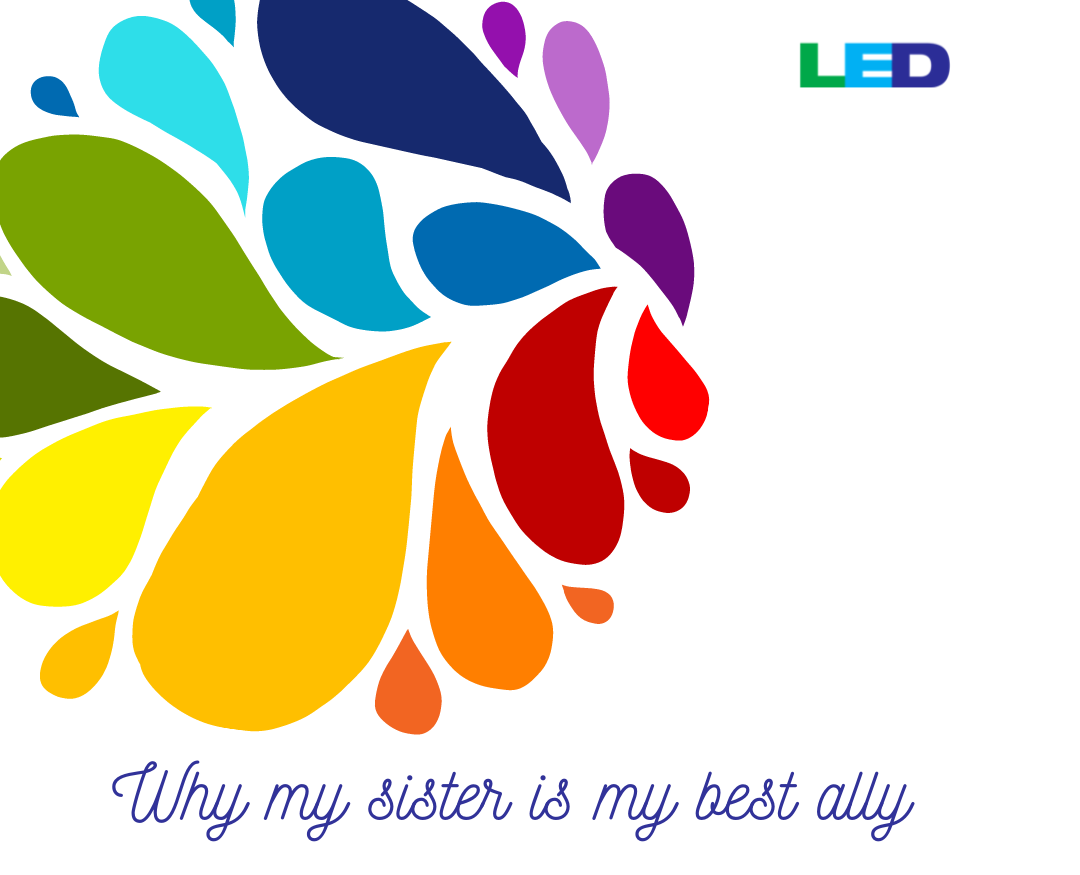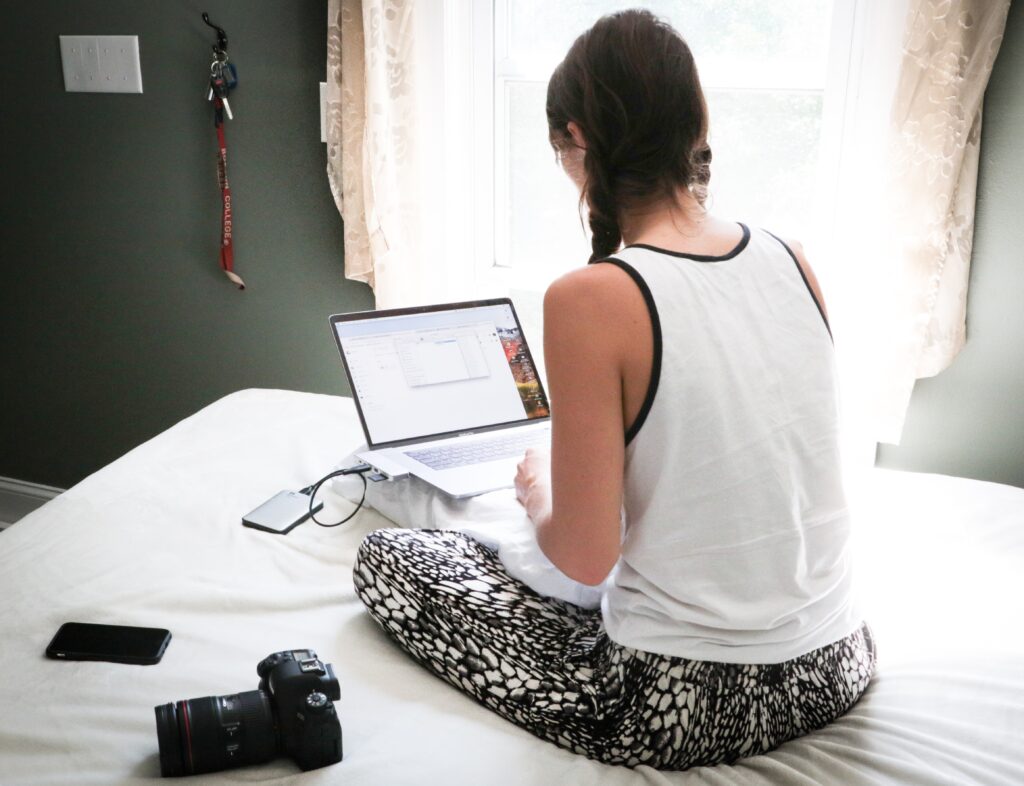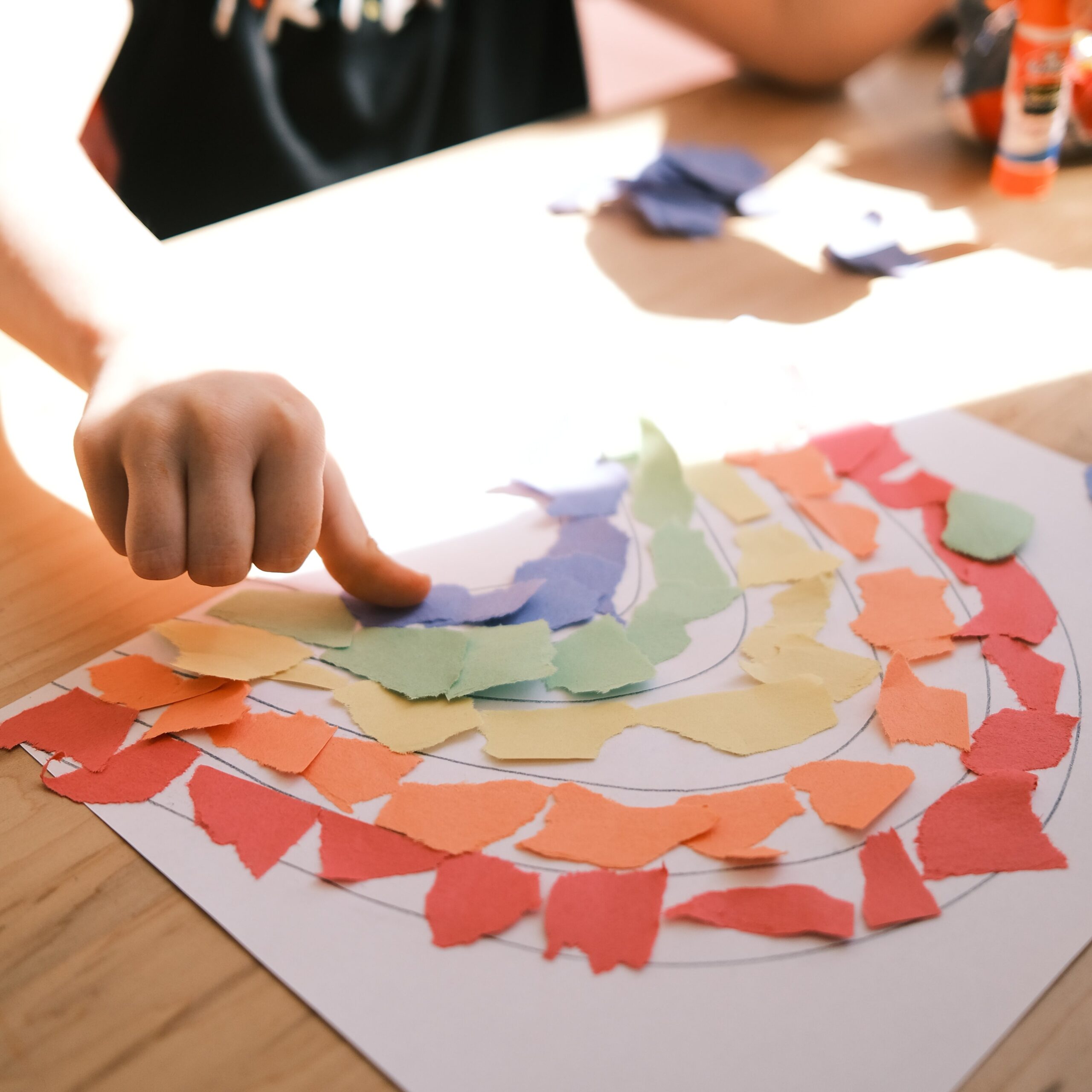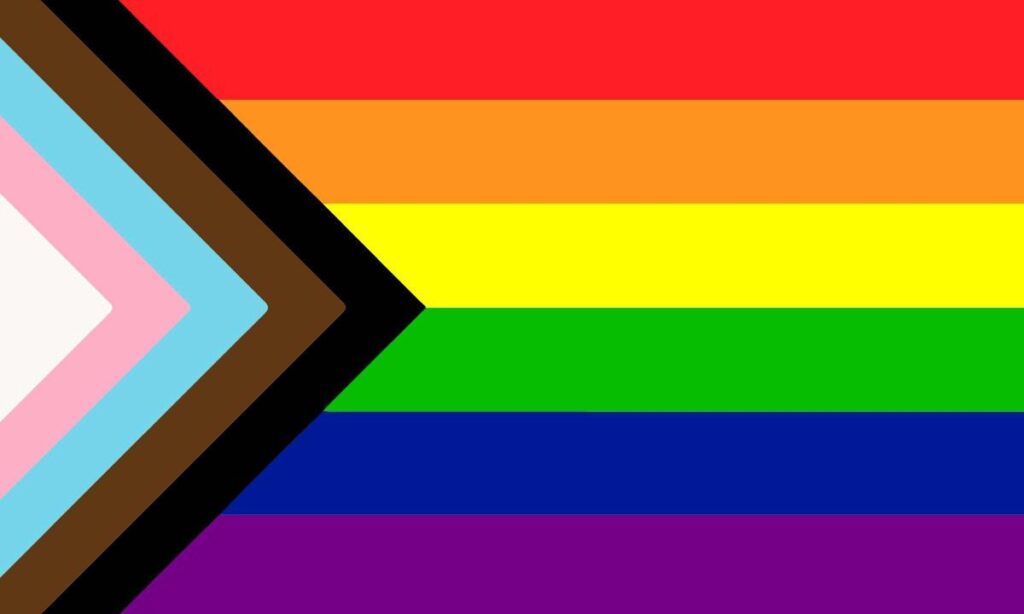
Why my Sister Is my Best Ally
My sister is my best ally. From grade school fights on marriage equality to centering and including my new queer identities, I would not have found quick comfort and safety in the cishet world without her in my corner.
Sister and Childhood Friends

As kids, my sister and I shared an inseparable bond. We shared everything: toys, hobbies, interests, obsessions, a room, friends, almost our birthdays (at only one week apart, hers just four years later than mine.) But as we grew up, it became increasingly noticeable that we didn’t share one thing: our crushes.
Or more accurately, my sister, Manda, shared her crushes, but I didn’t share mine. At the time, I couldn’t figure out why. I wasn’t out to myself; I had no idea that being gay was the reason. I thought everyone, including my sister, made a big deal out of crushes, and maybe I was just above it all.
Anytime I talked about boys, embarrassment accompanied me, resulting from never knowing what to say, just knowing something had to be said. I told white lies anytime crushes came up, but it happened as a reflex that I couldn’t work out. I consistently reduced myself to a guilty performance without knowing why. Even when I did get crushes—on girls—I couldn’t identify what that was until years later.
This difference between my sister and I—which, at the time, was only a difference of talking about crushes versus “keeping secrets”—was the first difference we really had. I could feel Manda’s frustrations on the subject from the way she pried (fake) crush confessions out of me, perhaps in a need process her own feelings by learning from her older sister. Which is something I failed to demonstrate in more ways than just romantic relationships.
Growing up and Growing Apart

I moved two hours away from Manda when I left for college, the first time we’d ever been truly apart. Only then did I start making the connections. I figured it all out: I am gay. This is why we are different. This is why I kept secrets. This is why I told lies. I didn’t yet know that this would bring us closer.
Soon after deciding I would never tell anyone what I discovered about myself, I fell in love with a girl and suddenly, I wanted to tell someone. I let myself feel this for the first time, really feel my feelings about a girl, and all those gushy crush confessions at late-night sleepovers with Manda and her friends clicked into place. This is what it feels like, I thought. This is a crush.
Manda was the first person I ever came out to, almost a year after I came out to myself and into my second year away from home. I didn’t fear her disapproval; I only feared sharing something about myself that I accidentally kept secret from her. Without realizing until it was too late, the secrets themselves became my identity. I didn’t know how to be myself without keeping secrets. I didn’t know who I was if I told the truth.
When I did tell her, I came out as bisexual, and I told her about my crush. She told me she already knew. About both. And I felt only relief. With Manda, I finally started rebuilding myself. I thought she would be an ally to me, but I hadn’t expected her to be the best ally.
Maybe she knew then, too, why parts of our shared childhood didn’t make sense. And I think even then, she might’ve known better than me. She has since told me the thought did occur to her.
Best Ally at Nine Years Old
After I came out to Manda, she assured me that our parents would accept me as I expect them to, and she shared a story to prove it. I’m pretty sure they thought I would be the family gay for a while there, she prefaced.
Back in fourth grade for Manda, when I’d been in my last year of middle school, a classroom argument broke on the subject of gays and marriage equality (pre-Obergefell v. Hodges), which wasn’t totally uncommon for our small-town school; I’d definitely been present for a handful of them myself. Without reflecting on too many of the details, Manda explained that people in her class bullied her for being on the “pro-gay” side of the argument. Manda had always been outspoken with her opinions, even back at age 10. Still, I’d been surprised to learn that Manda’s passion for lending a voice for those less able to give their own extended five years prior to even thinking the word “gay” applied to me.

Strong in front of others and soft at heart, Manda came home from school that day upset and crying after the classroom disagreement. Our dad had asked what the issue was, and Manda explained to him what happened. At the end of the talk, Manda recalled asking our dad, “If I was gay, would you still love me?” He said he would.
I don’t know if our dad remembers this moment or not, but I was grateful that Manda did. To know his 10-year-old daughter had asked this question, and he just said yes instead of a number of things he could’ve said. You’re too young. You don’t know. You probably aren’t. And plus, she wasn’t coming out at all. She’d just asked a question. Maybe she had been aware enough at the time to ask herself the same questions. Whatever the case, hearing this story made coming out to my parents a little less hard.
My Best Ally Centers & Includes my Identity
Since before day one, Manda’s been my best ally. She didn’t even need me to be an ally. She already was one; I just happened to get lucky to have her as a sister. But when I did come out, her ally actions became even more apparent.
She took me to Detroit Pride as a birthday present. She listens to and appreciates every gay artist I throw in her direction. She buys me gay-themed gifts like a rainbow piggy bank and baseball cap with a subtle rainbow unicorn. She welcomes the gay jokes I crack into the straight spaces with our family as if to say, “This part of you belongs here just as you always have.” Almost a decade after I first came out to her, we moved into a rented home together with our brother, her boyfriend, and his brother, and soon after setting our move-in date, she texted me to ask which Pride flag we should buy for the house. (We went with the progress Pride flag.)

I love everything she’s done for me, but the Best Ally status comes from a very particular and consistent action on her part: She asks questions.
My Best Ally Stays Informed
There’s a line between treating your queer friends like the all-knowing LGBTQ+ encyclopedia and asking us to clarify some queer topics, especially when google is certainly available. But the amount of controversial queer discourse online can be confusing, even for us gays. With Manda, I know she’s doing her best, and she always has. And she’s shown me many times all the ways she has, from that 4th grade tiff to relating points of interest in her women and gender studies courses back to my own perspective; her best effort has always been at the forefront.
So, when she does have questions, it’s never from a point of no education. The questions are, in fact, rooted in over-education and a need of clarification on perspectives and discourse where she values my opinion to weigh in on the subject. This is always evident as she often presents the subtopic, the conflicting views in context (which could include her own), and asks for my opinion. And this doesn’t just reflect pieces of LGBTQ+ discourse (like whether or not people inside and outside the community should be using “queer” as an umbrella term to refer to the community), but also about personal identity questions, which I value even more.
My Best Lesbian Ally
Probably a year ago now, I sat on the couch with Manda, our younger brother, and her boyfriend. I likely made some kind of joke implying my sexual distaste for men at a time when I’d realized the “bisexual” label wasn’t right, but I hadn’t made any effort to make this clarification for anyone outside the queer community. Manda had asked then, with a nonchalant attitude that indicated this question had no impact on my relationship with anyone in the room (which was great, because it didn’t), “Are you still bisexual?”
And just like that, she helped clarify my true identity to some of the people I’m closest to after months of fretting over whether or not to make this distinction between labels for them. Soon after, she had made a joke by calling me the family “lesbian.” I’d clung to the way the identity sounded on me. It really fit. It really felt right. I immediately texted my girlfriend to share that feeling and probably shed a happy tear hidden under my sunglasses at the gas station.
My Best Nonbinary Ally
After asking Manda to write a guest post on my blog, A Lesbian And Her Laptop, about handling a loved one’s coming out, I turned the conversation into a joke about coming out again. I slid in the good ol’ “speaking of coming out…” and alluded to the fact that I found gender confusing and began questioning whether or not I was cisgender. She processed quickly, taking it in and returning comfort.
“This isn’t totally surprising,” she confessed before asking how I felt about my pronouns, if I was changing them, if there were other ways she could help me figure gender out. It was a short conversation, but open, and she remained balanced between comforting and curious enough for me to continue turning to her at each new revelation. When I got a binder, I told her about it and how it made me feel. When I was ready to test they/them pronouns, I asked for her support. When I switched to they/them pronouns entirely, she and her boyfriend practiced using them (even when I wasn’t around). A few curious conversations from her with the education to support it really made this one of my best coming out experiences ever.
My Best Ally Loves Me
Manda never made me feel like I owed an explanation. In fact, it felt like my identity was the explanation when things didn’t make sense. She took my new identities in and didn’t just move on, as I find many straight people often do. She took it and made sure of understanding, of welcoming, of embracing, and of never forgetting.
I’ve always described my sister as fearless. And she is, despite her disagreements. She’s always been fearless when it really meant something to me. Not afraid to stand up to anti-gay views in a classroom. Not afraid to ask questions about what is okay and what isn’t. Not afraid to say the word “lesbian” in front of friends and family.
Manda is the definition of a good ally to the LGBTQ+ community. She embodies acceptance and extends this invitation to those who think tolerance is enough. It’s only the minimum, and her actions continue to inspire others in our own circles to make this distinction between acceptance and tolerance, just by not being afraid.
In more ways than just with my identity, growing apart has only brought us closer.

